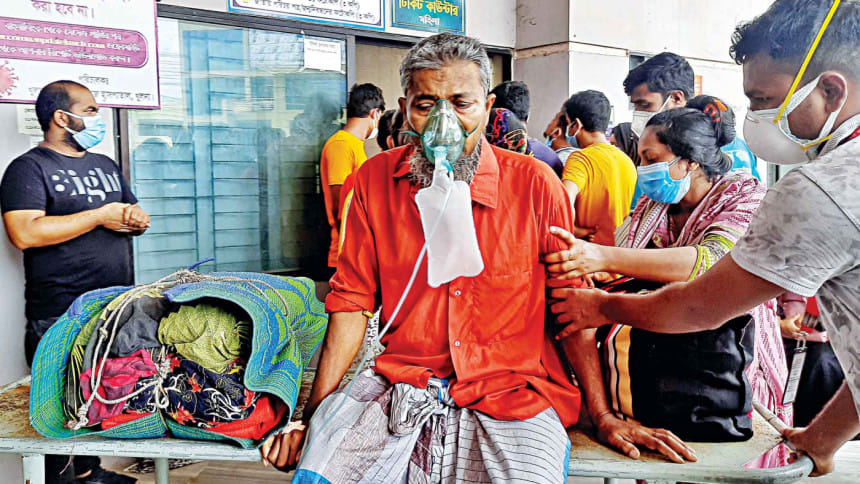Border hospitals under stress

Looking at how the Covid-19 pandemic has been handled so far gives one the impression that we have been constantly outrun by it. We have failed to be proactive. It also exposes the error of concentrating most of the national resources in the capital. The fallacy of it has no more been so starkly exposed than during the pandemic, when the outlying districts and upazilas are struggling to cope with the onslaught of the virus, whereas most of the resources have been directed towards the capital.
The pandemic is in its second year with little sign of relenting. Yet, little have we learnt from the way the pandemic was handled (or mishandled). While there is a lack of equipment and facilities at our disposal, their shortage can be made up if one has the money. What is at premium in this case are trained medical personnel, most of all nurses and medical aids, which money cannot acquire within a short time. One wonders if any special programme has been taken to make up the shortfall in this category. If so, one would have hoped that the bordering areas would not be so badly strapped for trained medical personnel with health workers being forced to take on an overwhelming load of hours which, is not sustainable.
The impending second onslaught was not unforeseen and that it would have the most serious consequences on the bordering districts was also anticipated, and instructions had been issued accordingly to take appropriate measures. But what was not concurrently done was to ensure that hospitals and medical centres in this region were adequately and equitably resourced in all respects. That, regrettably, had not been done.
As the situation stands today, with nearly 30 percent positivity rate on the average in border districts, hospitals in these areas are under tremendous strain to cope with the situation, due mostly to the lack of frontline doctors and nurses. In some hospitals, numbers of doctors and medical staff do not commensurate with the number of beds, which in most cases are now full. Medicines and other health aids are of no use if there are not enough people to administer them.
We suggest that the shortfall in the border district hospitals be met from other parts of the country that are not under similar duress. Concurrently, nurses' training should be started through crash courses to cater to the situation. As it is, we have always been running short of nurses. Given the spike in positivity rate, unless immediate measures are taken to increase the number of healthcare workers in these hospitals, things might soon run out of control.

 For all latest news, follow The Daily Star's Google News channel.
For all latest news, follow The Daily Star's Google News channel. 




Comments